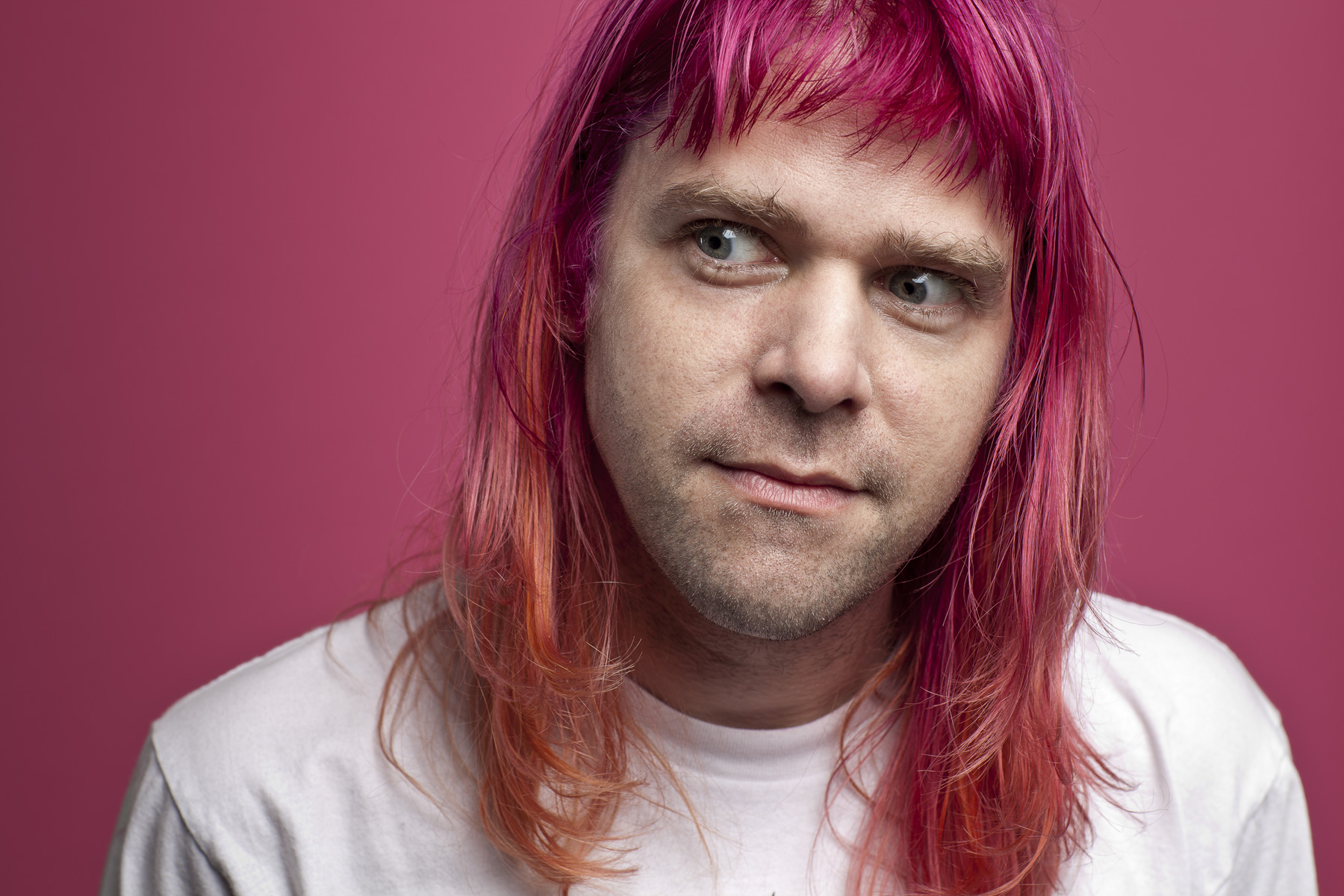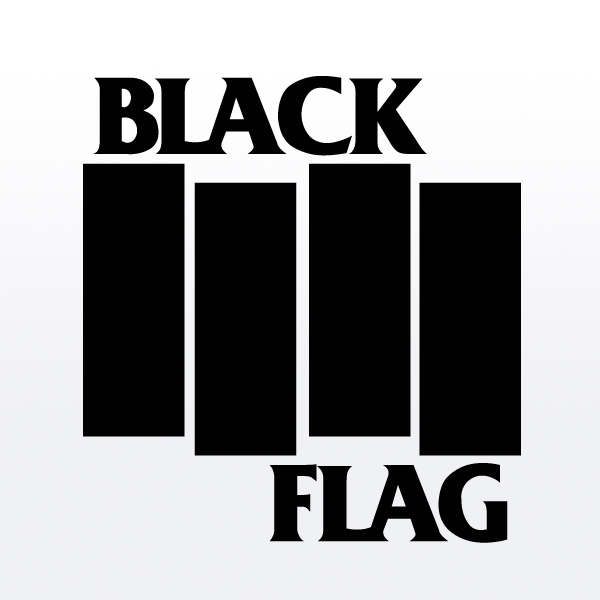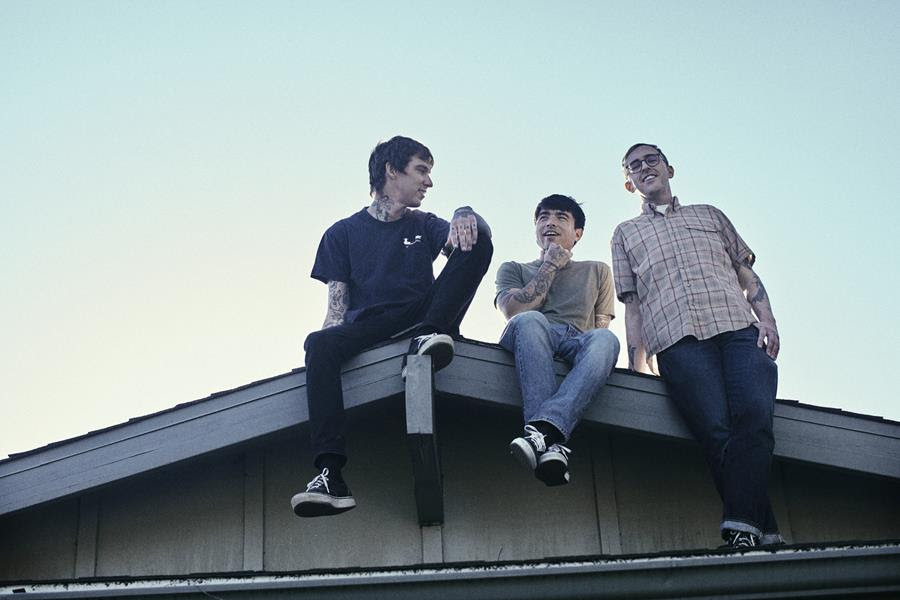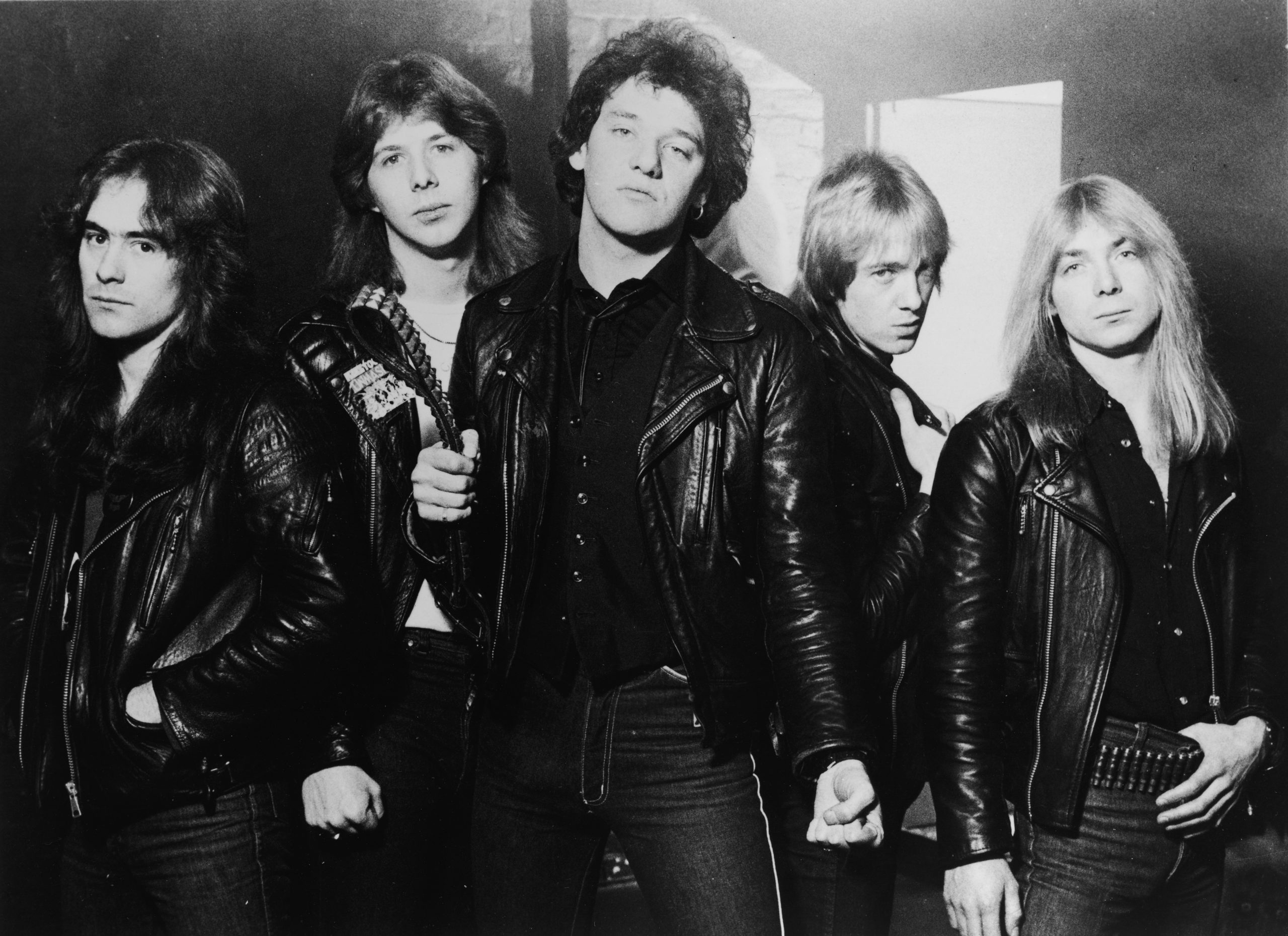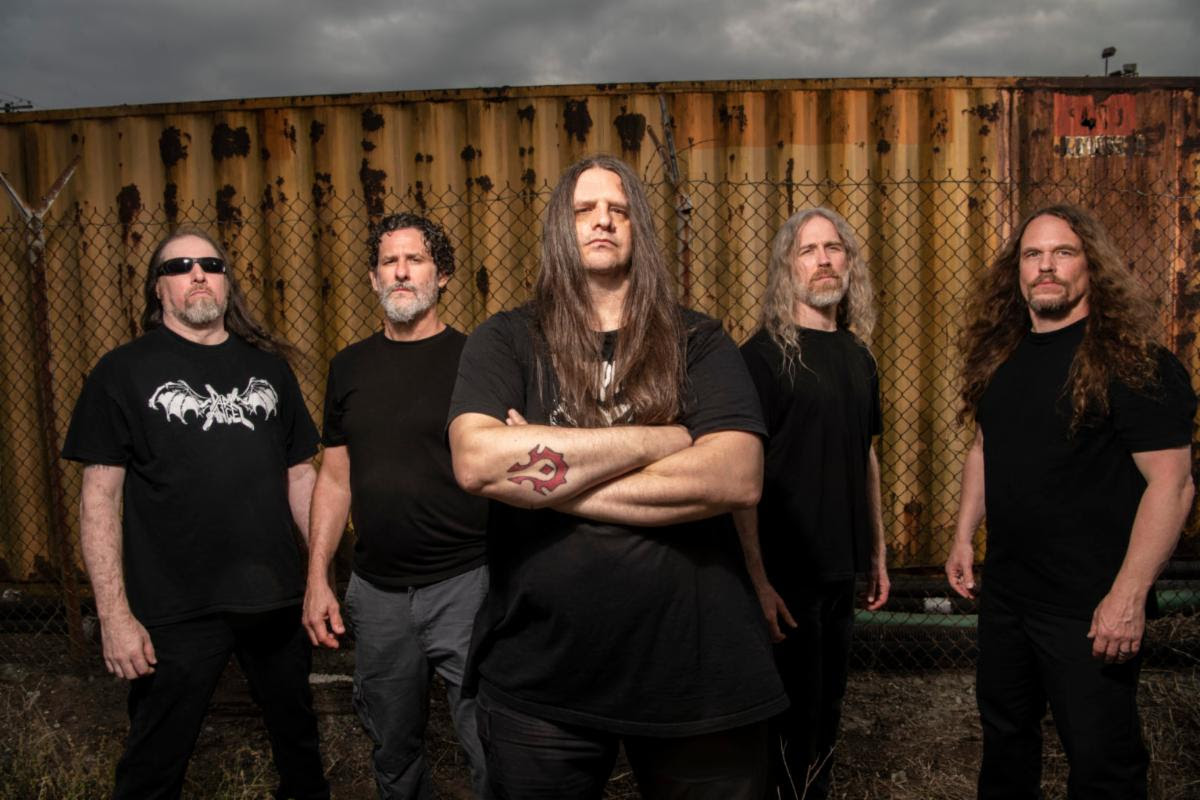As his band traveled through a lightning storm somewhere in the American Midwest, Ariel "Pink" Rosenberg yelled at me over the telephone. It was April 2005, and I was holed up in the spare bedroom of a rented house in York, PA, repeatedly posing pre-prepared interview questions in order to be heard over the noise at the other end of the line. The tape recorder exploded my hesitant entreaties and Rosenberg's replies to a monstrous, grotesque volume, his bandmates snickering as their leader's answers vacillated from measured to unhinged, sometimes in the space of several minutes; the transmission frequently trembled, whinged by sharp bursts of static. And while some of that exchange survives here, what I came away from the conversation with was a fascination for, a confusion about, and a fear of the guy. I was fascinated by the depth and breadth of his musical scholarship; confused because I couldn't begin to fathom how much of his persona might be a put-on and how much might be genuine mental instability; and afraid because our chat, despite a separation of hundreds of miles, was the most uncomfortable and unsettling telephone interview I'd ever conducted with any musician. (A decade later, this still holds true.)
Speaking of confusion. The period spanning from this Los Angeles native's mid-1990s recordings through to just before the studio sessions for 2010's Before Today -- what we might think of as Ariel Pink's Haunted Graffiti Mach 1.0 -- the man's whole trip thrived on confusion. The incomprehensibly off-color interview features. The temporal morass of a massive, incessantly re-upped catalogue where recording dates strayed further from the time of creation with each new label and re-issue. (For this feature, I limited myself to the highest-profile releases.) The hit or miss live sets. Oh, and the actual music: rickety, irresistible tunes seemingly held together with scotch tape, twine, tinsel, and dog-eared copies of Billboard circa 1970 through 1988 -- a burnt, inexhaustible shock'n'awe of blurted keyboards, mashed guitar chords, schizophrenic vocals, and mouth percussion standing in for actual drums. The appeal isn't difficult to suss out, of course: At its finest, Rosenberg's catalogue gets by on no-filter candor, adolescent gross-out humor, and grand-slam hooks that will rattle endlessly around in your skull, sometimes triggering odd associations. For listeners of a certain age "Are You Gonna Look After My Boys?" from Scared Famous, is equally likely to evoke DeBarge's "Rhythm Of The Night," the Goldie Hawn/Kurt Russell dramedy Overboard, and Kramer's pet name for his genitals on Seinfeld. For musos and hipsters alike, here was a chance to have their cake and eat it, too: the muffled cool of cult pop married to national indie-store distribution through (for a while) Animal Collective's Paw Tracks imprint.
If Before Today kicked off Ariel Pink's Haunted Graffiti Mach 2.0, which found Rosenberg and his cohort working in actual studios, 2012's Mature Themes appears to have capped it. The difference? Actual drums, less murk, sharper song construction, and an apparent awareness that the world beyond the bloggerati might be tuning in: Today's creamy "Can't Hear My Eyes" and Themes' sultry baby swung for the fences hard enough to excuse the surrounding hijinks. With last year's pom pom -- Mach 3.0 -- Rosenberg had delivered what was for all intents and purposes a twisted children's album for adults while ratcheting his media trolling up to the level, in the words of a friend, of "an indie-rock Ann Coulter." He time-shared a bizarro Gidget boner with rapper/singer Azealia Banks. He was rumored to be contributing to Madonna's Rebel Heart -- then put his foot in mouth. He slagged off Grimes. With every passing month, as the man's profile expands and his persona becomes less defensible -- even as the song craft that brought him to our collective attention in the first place accrues replay value. Even tougher: the work of ranking what he's achieved over the past two decades, but I certainly gave it my best shot.
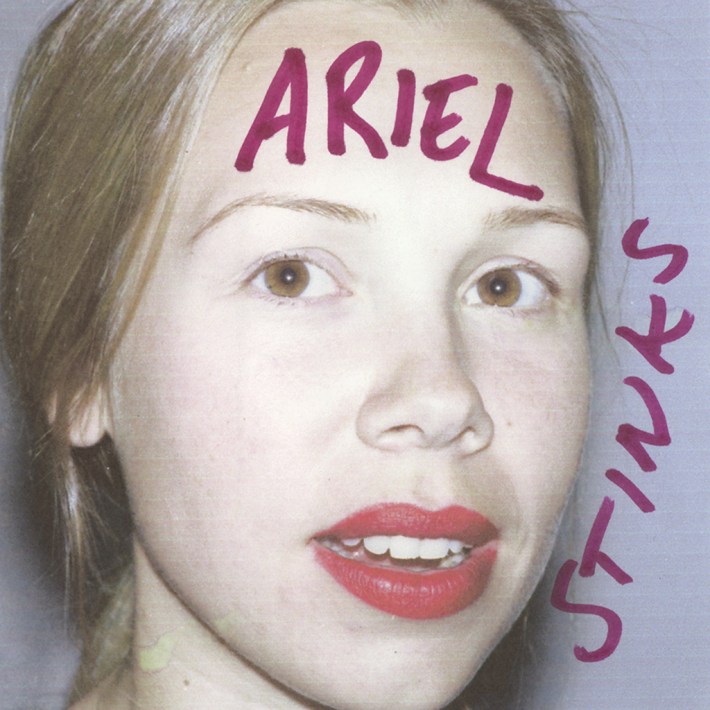
In notes while listening for this article, I compared 1998's Thrash & Burn to the Silver Jews' Arizona Record, Pavement's Westing (By Musket And Sextant), and Beck's Stereopathetic Soulmanure — stripped down, amniotic marginalia that barely hinted at what those artists would later be capable of. Now I'm not sure if that's fully accurate. Those albums I mentioned before? They're dry runs. Thrash & Burn is a pre-dry run — the loose, tentative stretches you do before you really stretch and before you really exercise. It is two CDs – two whole CDs — of Rosenberg dipping the skin on his big toe into the songwriting pool. So, sketches: guitar noodling, keyboard drift, tossed-off vocals, self-conscious babbling, field recordings, long stretches of noise. The secret to enjoying this is to remove it from the context of what Ariel Pink's Haunted Graffiti traditionally represent; reimagine it as "Ariel Pink ambient," spin it on a boom box one room over, then focus on something else.

With the exception of the cover of its John Maus-penned title track and the smirk-y bleep-core of "I Don't Need Enemies," Lover Boy is mostly forgettable — a sort of parade of serviceable C-sides that passes by pleasantly but you won't miss even a little. If this feature were an evolutionary chart pictograph, this album would be a single step up from Thrash & Burn, with Thrash & Burn rendered as an amoeba. On the plus side, be glad he reserved most of his best stuff for better albums. But, you know, if you need more reasons to spend time with it, "Blue Straws" plays like an experimental radio serial and "Phoebus Palast" flouts a sick slide whistle. If this was anyone's first exposure to Ariel Pink’s Haunted Graffiti, it would very likely double as their last.
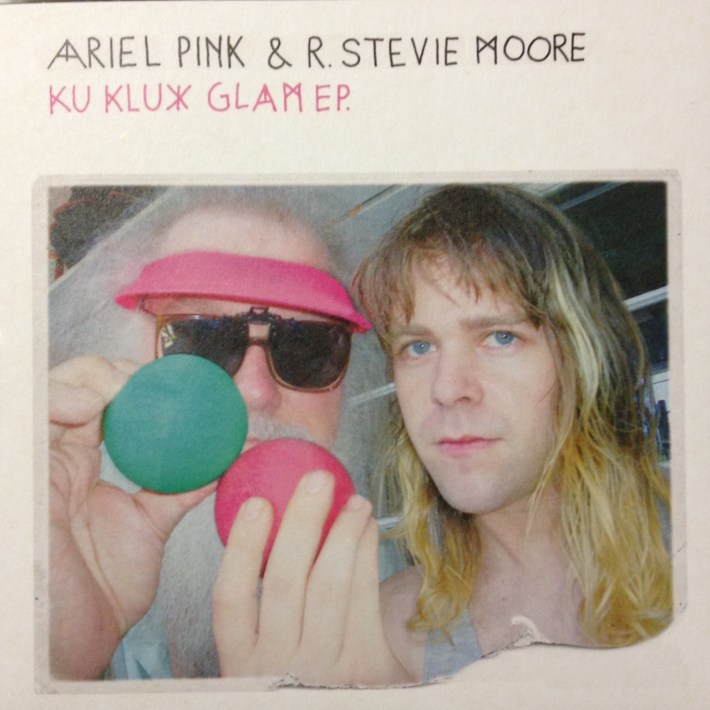
Early in Rosenberg's career, R. Stevie Moore's name popped up often in media coverage. A prolific, macabre underground icon with hundreds of outsider releases to his credit, Moore was the Bob Dylan to Rosenberg's Beck. On Ku Klux Glam the duo make their mutual admiration society official. (Unless you're a diehard fan of either or both, do yourself a huge favor and stay far away from the 63-track edition, which is a nightmare of eye-rolling in-jokes and fucking off that dilutes the actual rock these two get up to. It's a gas on first listen, then interminable.) "No Zipper" is primo, untucked bar-band sludge; "Lo-Fi No Cry" transitions to skeletal beat programming to drug-trip Northern Lights gazing in a way, achieving a mad brilliance that Rosenberg's solo journeys into wordless ponderous rarely achieve; "Sacred Snow" personifies tuneful insanity; "Stevepink Javascript" laughingly sends up the idea that weirdos of different generations would find working together a complete nightmare. A head-trip respite from Rosenberg's more palatable records, Ku Klux Glam is nonetheless a bleary, unkempt good time in all the best possible ways.
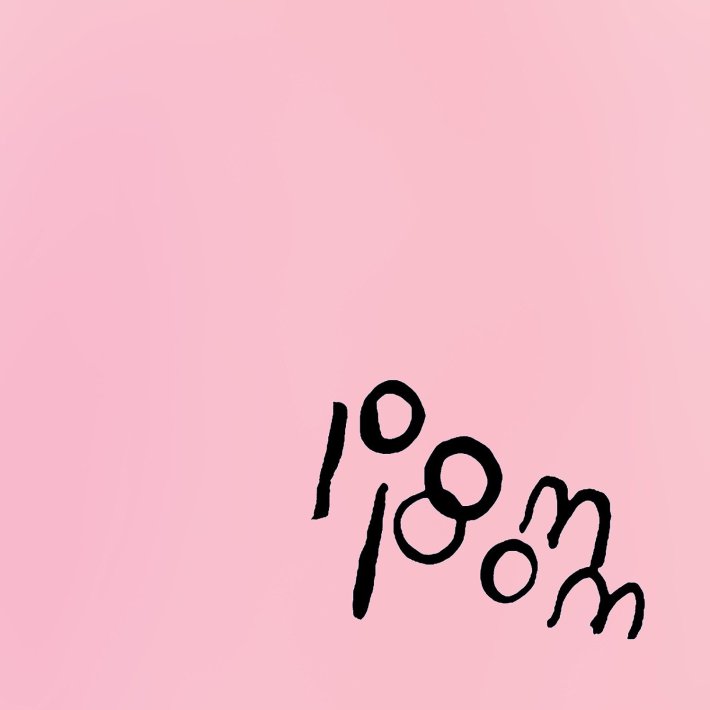
In 2013 and 2014, Kim Deal staged an unlikely, non-Breeders singles campaign, quietly issuing a single or two every couple months. Some singles were astonishing, and some were just passable, but this approach allowed the former Pixies bassist to subvert the idea of a "comeback" while remaining within (if only on the outer margins of) the larger popular music conversation. Rosenberg doesn't need to engineer a comeback; given the present state of the industry, his Q rating is reasonably sizable. But from an artistic perspective, pom pom should've been a similarly piecemeal thing, separate from the organizing principle of an album. As a collection of songs, it does itself a disservice, flat out failing to gel on any level. And that's a shame, because on an individual level its pieces are dinky, Romper Room marvels: no-meds un-jingle "Jell-o," the Detroit punk snarl of "Goth Bomb," the black hole kiss-off "Picture Me Gone." That there's less tape hiss, less distortion, and less instrumentation than ever on this two-disc set may be its downfall — the result being that each song is very much separate from its neighbors. The late Kim Fowley penned the lyrics to a few tunes, including "Nude Beach A- Go-Go," where Rosenberg collaborated with rapper Azealia Banks. Everything and anything here will absolutely slay on any mixtape or self-made CD-80 of Ariel Pinks you care to self-curate; just don't bother listening to pom pom from start to finish.

Maybe it's the variegated purple crowding the turntable on the cover, or maybe it's down to the resin-caked squeal and haze of "Trepanated Earth" and the scribbled out-drift of "Foilly Foibles/GOLD," but Worn Copy always surfaces in my memory as Rosenberg's prog-rock opus. Upon revisits, pop gems that rank among his best spill out all over the place: the curdled, po'faced "Immune to Emotion," white trucker funk number "Jules Lost His Jewels," drugged vamp "Creepshow," the fake English folk lilt of "Artifact." And though on its face, "Credit" scans as dizzy disco camp, a song that's catchier than most advertising jingles itself stands apart as an oddly sincere, anti-capitalist carol.
So why isn't this one ranked higher on the list? Because in context, Worn Copy — the final album included here committed to tape pre-Before Today, between 2002 and 2003 — doesn't cohere quite as solidly as some of the releases above it, and a muted insularity colors its highlights; there's nothing here anyone would feel compelled to murder in the shower or scream at a bro who's screaming it back in your face at night on a long road trip. ("Interesting Results" from House Arrest? "Don't Talk to Strangers" from Lover Boy? Oh, most def.) That said, this release covers some fascinating Haunted Graffiti territory and very effectively simulates a deep-dive into the darkest corners of, well, one gifted misfit's complicated psyche.

In retrospect — in some ways — Mature Themes feels like a warm-up for the contoured directness of pom pom. The instrumentation bears a real crispness (mostly), and Rosenberg's vocals ring out relatively clear and sharp (sometimes), all the better to slime, cajole, or bewilder listeners' eardrums. The painfully hummable "Kinski Assassin" and "Live It Up" exemplify this upgrade. Wistful "Only in My Dreams" and aching "Baby," a cover of the Donnie and Joe Emerson original, kept the Haunted Graffiti torch song dream alive. Curiously, though, the most thrilling tunes here revert to near dog-shit fidelity: nonsensically gross "Symphony of the Nymph," knuckle- dragging nosh anthem "Schnitzel Boogie," twinkle-bop gem "Live It Up." Production schizophrenia aside, more than predecessor Before Today, Mature Themes is just flat out funnier, even if the yuks are droll: Rosenberg's exchange with the server on "Schnitzel Boogie," "I'm not real and I won't call you" as a parting shot on the title track," pretty much every verse sung on "Kinski Assassin."
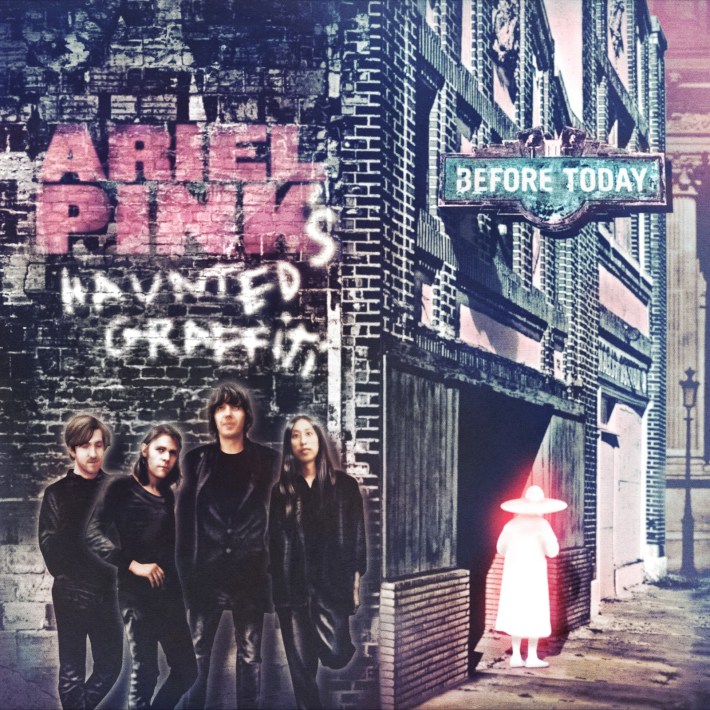
This marked the point where shit got real, or less unreal, anyway. Recorded in various studios and grave-robbed from earlier EPs and singles, Before Today stands second only to The Doldrums in terms of sequencing acumen; it screams "rock album" in a way that no other entry on this list does, exuding an aesthesia cool and distance, the production sharper by a matter of degrees. There's a deliberateness and seriousness of intent at work here separating it from funnier, ickier successor Mature Themes: one doesn't giggle at or with, say, "Round and Round" — one marvels at its melting street-lamp tonalities and the seductive arrangements. One thrills to the roadhouse ivory stomp of "Little Wig," which would nicely complement a capsule of trucker speed, or to the deep shag-rug swirl cover of The Ramrods' "Bright Lit Blue Skies." Wood-paneled "Can't Hear My Eyes" is deployed with such pop acuity that's easy to overlook how oddly angled its lyrical conceit is. (Did you know that members of Cryptacize sing backing vocals on that song? Now you do.) "Fright Night" delivers grade-A horror schlock, but actual ribaldry/misandry is confined to the pile driving (in more ways than one) "Butt-House Blondies" and no-tempo dirge "Menopause Man." Before Today isn't the Platonic ideal of Ariel Pink's Haunted Graffiti by any means, but you'll have to pry it from my cold, dead fingers.

Recorded between September 2000 and July 2001, Scared Famous is a characteristically scattered puzzle where every piece has at least the kernel of a hit single buried inside. Perennial fan favorite "Are You Gonna Look After My Boys?" steals the show, but the everywhere the Technicolor cartoon glory's in full effects, with guitars exploding like fireworks all around. "Howling at the Moon" is white falsetto funk with the Mega Man soundtrack pulsating beneath it. "The Kitchen Club" — about holing up in the kitchen at a house party — flaunts a see-sawing series of keyboard chords that change colors from moment to moment, like a mood ring; one instant they're hot pink, the next they're viscera red. Alternating between high and low registers, Rosenberg frames "Politely Declined" as a surrealist pick-up scene dialogue; dutiful guitars face off against synth effects that always make me think of strangled cats. Were "Beefbud" boiled down to two unmitigated minutes of chorus, it would be dunderheaded perfection. On some days, this is Rosenberg's best album.

For a lot of Ariel Pink fans, this is where it all began. Self-released in 2000 and reissued by Paw Tracks in 2004, The Doldrums is singular in Rosenberg's catalogue for several reasons: it presented as a depressive break-up album; it found Rosenberg restraining his compositional fireworks without hog-tying them; and lyrically it was bashful in a way that pretty much every other Ariel Pink album issued (or relentlessly reissued) wouldn't be, and even when it wasn't so bashful (cf. "Among Dreams") the fidelity was so poor that nobody could tell. These songs belong and fit together thematically.
This was outsider pop on a handful of downers, and since the world outside clued-in hipsters and L.A. weirdoes didn't know who Rosenberg was yet, it was easy to assume that The Doldrums represented a modified Reynols or Jandek scenario — some mystery caveman with a great ear for bygone pop, a yen for home-recording, and access to his parents' vinyl stash. There's so much to treasure here: the skiffle-shriek of "Haunted Graffiti," loose-strung sing-along "Let's Build a Campfire There," the teary synth-pop yearning of "Until the Night Dies," how "Good Kids Make Bad Grown Ups" asphyxiates a panic attack with a pity party.
The mouth drumming was in full effect, the instrumentation flailed around in a loose but determined approximation of pro songwriting, everything sounded like a 20-generation dub of a 20-generation dub, and half the time Rosenberg seemed on the verge of tumbling down a well, literally and figuratively speaking; on no other album has the man sounded this totally lost and alone, or been able to draw a listener so fully into his headspace. Go listen to The Doldrums again, right now; it remains as alien and forlorn and unfathomable as it did way back in 2004.
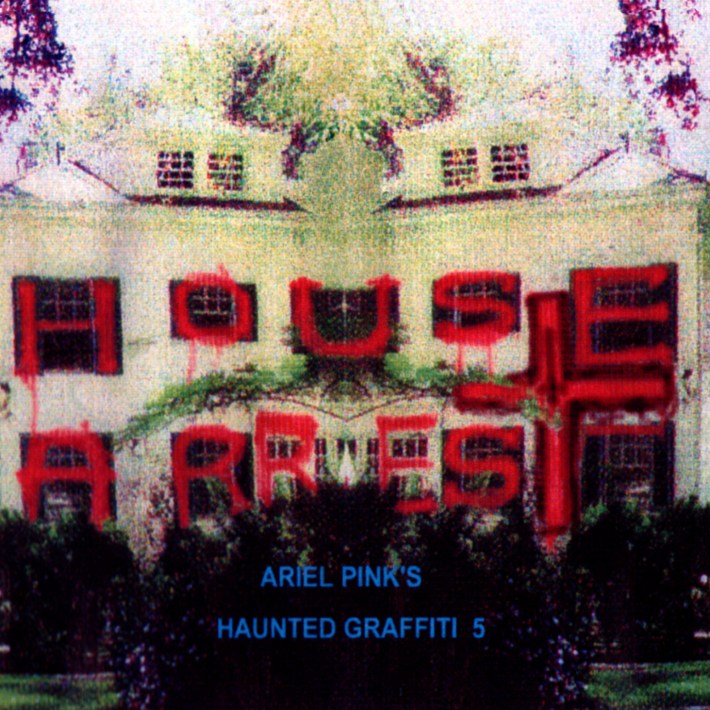
Rosenberg's dad must love the title track to House Arrest, a flicking pop glow-stick yoked to a voicemail where he lambasts the singer for an utter lack of responsibility, then urges him to "call me when you have a chance." There's something deeply oxymoronic about this, so it's fitting that "House Arrest" surfaces on the album that best demonstrates that for all his failing, Rosenberg gives a fuck about something. The toughest aspect of this feature turned out to be deciding which album would top it. For a long time — from the moment of pitching to a couple days ago — The Doldrums seemed to the one to beat, because (rockism alert!) it hung together best as a collection songs. For a day or two the mania of Scared Famous seemed like a shoo-in. Throughout, House Arrest lingered in the second spot. Fact is, though, this record is what I reach for whenever I'm fiending for an Ariel Pink's Haunted Graffiti fix.
Recorded between October 2001 and July 2002, House Arrest doubles down on everything that's ecstatic about Rosenberg's songwriting. For acid-dipped majesty, "Gettin' High in The Morning" can't be beat; the sheer irresistibility of chicken-fried "West Coast Calamities" is almost enough to overcome the fact that you'll never think about Girl Scouts the same after hearing it. "Almost Waiting" suggests some weird garage-country doo-wop hybrid. The eminently perennial "Interesting Results" is a killer song about how it's impossible to know whether any song you write will ultimately kill. "Alisa" and "Helen," two of Rosenberg's earliest stabs at balladry, are genuinely affecting if lyrically over the top; it should come as no surprise to anyone that the latter sounds like a Motown-produced Herman's Hermits. Wooly, wacky, and damned with terrible fidelity, House Arrest is undeniably, almost obscenely accessible.
